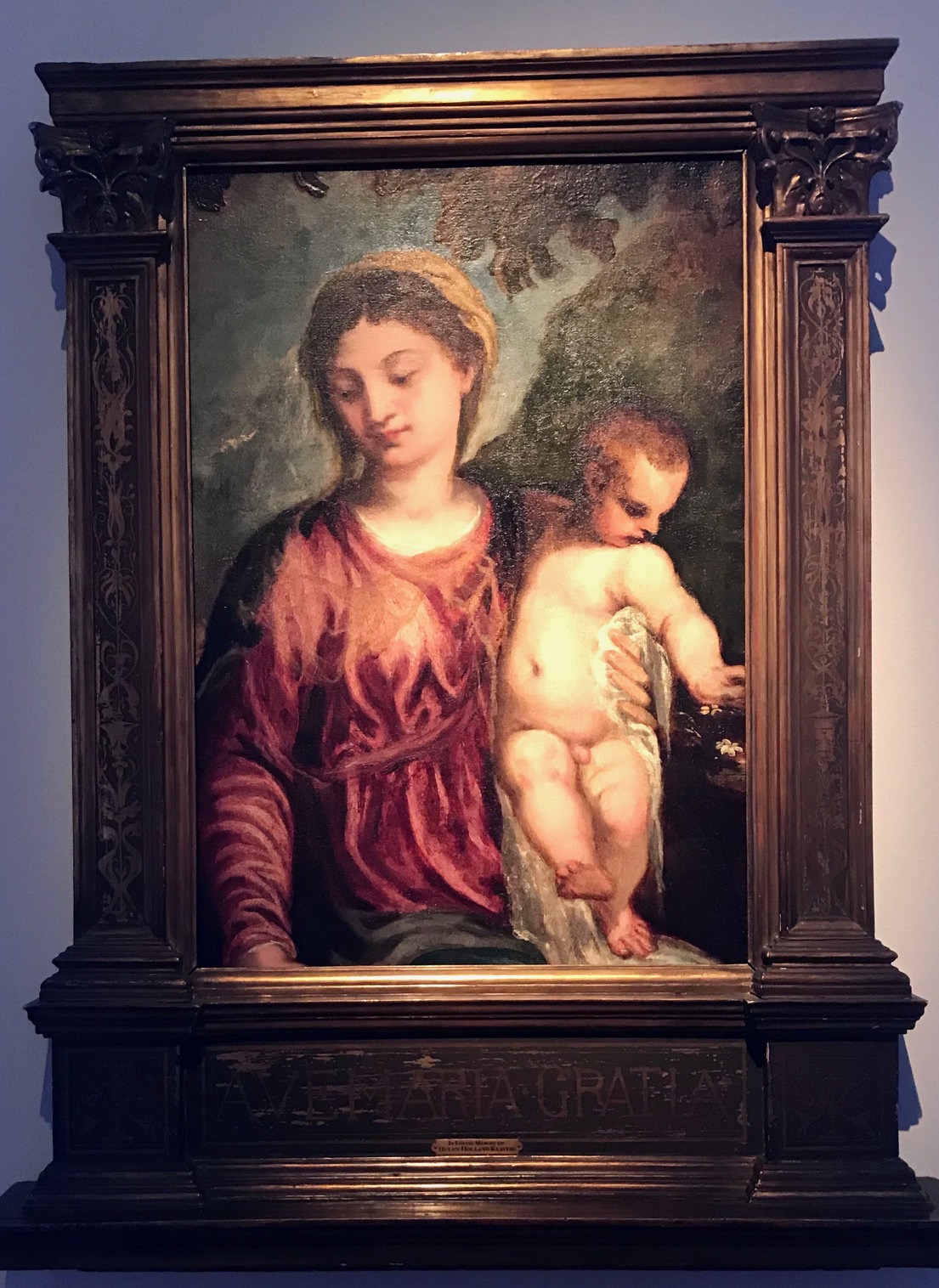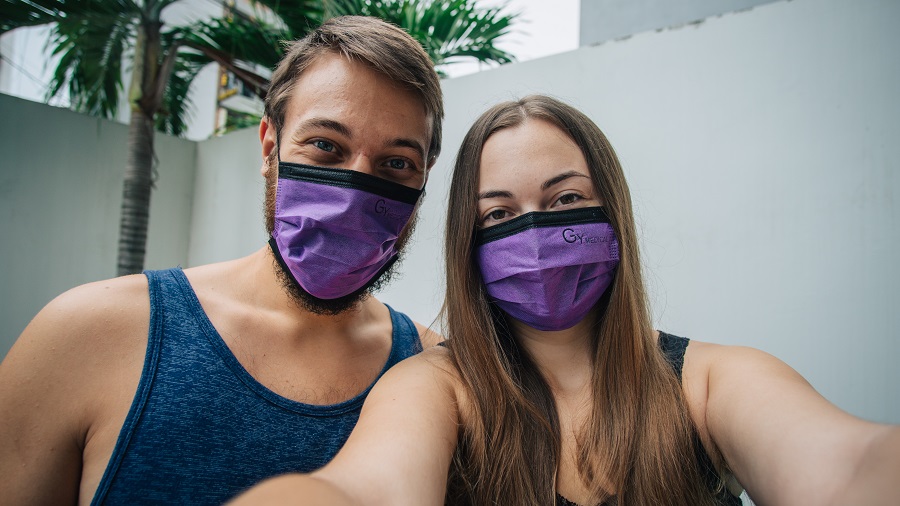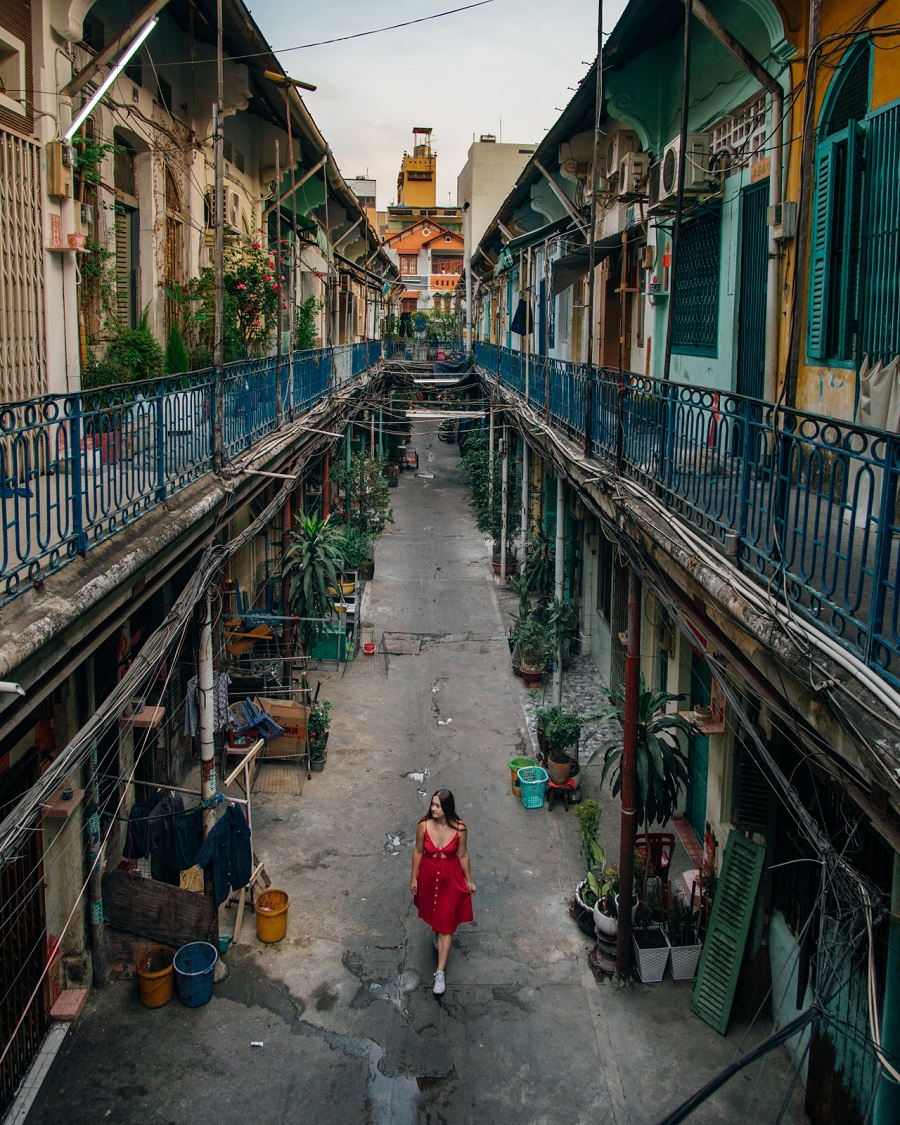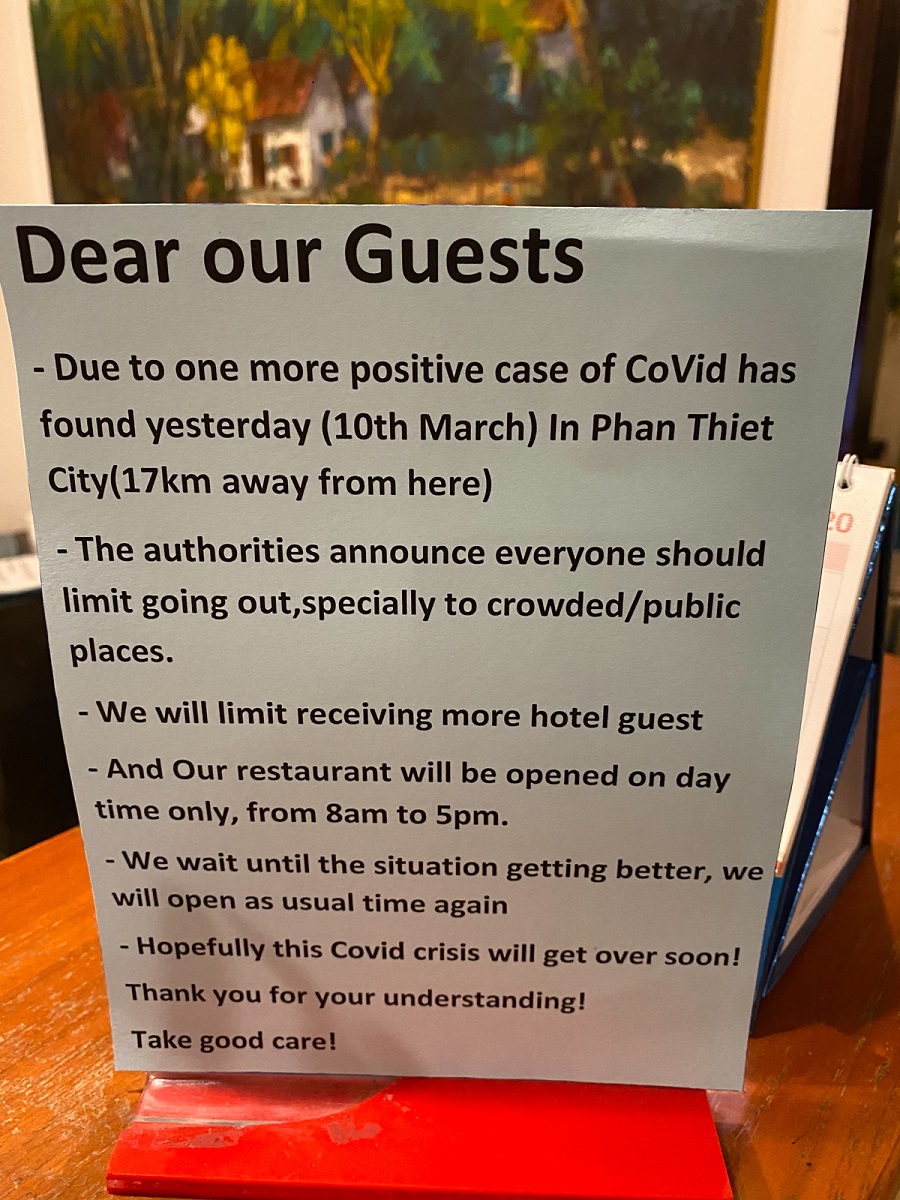To read more breaking news in Croatia, follow TCN's dedicated page.
Sarah Milkovich of Croatian Descent, Part of NASA Team Launching Mars Rover
July 29, 2020 - Sarah Milkovich Ph. D. is the Assistant Science Office Manager for the Mars 2020 Perseverance Rover Mission.
My mother's maiden name was Milković (which is a common Croatian last name, to be fair), so when I noticed that in the internet community I enjoy, there was another person with that last name, I reached out to her and told her that she was probably my long lost cousin. She's most likely not, in all honesty. Still, that lead to us talking a bit more and me realizing what an awesome person I started talking to. Sarah Milkovich is not just your run-of-the-mill great scientist; her biography is so impressive it's not easy even to summarize it into a few sentences.
A bachelor's degree in planetary science from Caltech and a Ph.D. in planetary geology from the Ivy League Brown University tend to lead to a job at NASA, and Sarah has worked at the NASA Jet Propulsion Laboratory for a while now, where she's worked on several major missions. Those include the Cassini-Huygens mission to Saturn and the previous Mars rover, Curiosity. These days Sarah and her team are very busy on their new mission, the Mars 2020 rover, which is set to be launched towards Mars tomorrow, on July 30, 2020. I interviewed her for my radio science talk show on Croatian radio back in March, but due to numerous complications too complex to elaborate on, our conversation was broadcast yesterday (if you want to hear the entire conversation and can follow it in Croatian, you can hear it here).

Sarah explained to me how her great-grandparents on her father’s side arrived from Croatia to the USA quite a long time ago, from a village in Croatia near the Slovenian border (which is a piece of information later confirmed in a conversation on Twitter, where Sarah used a Slovenian word for what we'd call orahnjača or orehnjača in Croatia, thus bursting every last small remaining bubble of hope that I might be related to such a brilliant person, as my family was from nowhere near Slovenia :( ). Her father was the first one in his family in the States who married outside the Croatian community. Sarah was born and raised in Minnesota, learning about geology from her parents, and about space exploration from watching the numerous documentaries on the topic. She explained all about the planetary geology, how it takes what we understand about the forces which formed the Earth, and applies that to figure out how the same forces would've worked under the conditions which are present on other planets. It started by using telescopes, but these days, as we are capable of landing delicate equipment on Mars, they're applying similar techniques and methods used in geology on Earth (except that, of course, we still can't get the samples back, but we're hoping to be able to do that soon).

She explained to me what the Mars 2020 Perseverance rover would be about: it's a car-sized vehicle, planned to land into the Jezero crater on Mars (if that sounds a bit Croatian to you, you're right, the crater was named after the Croatian word for a lake and a village in Bosnia). The shape of the crater strongly suggests there used to be a river going into it at some point, back when there was flowing water on the surface of Mars. The time period of that running water seems to match the time period when life began on Earth, and since the conditions were similar on Mars and Earth back then, the scientists are trying to find evidence that there was life on Mars then. In the conversation, I got to hear many more technical details on the rover and about the plans for its operation on Mars, including the ambitious plans to collect samples and leave them on the surface of Mars for some future mission, which will be able to collect them and bring them back to Earth. Oh, yeah, the mission will also include a Mars helicopter, although we didn't talk about it much!
Follow the launch of the Mars 2020 Perseverance rover tomorrow, and wish the rover and the people behind it (including our own Sarah Milkovich) the best of luck and a successful mission after it lands on Mars in February of 2021!
Communication Challenges in COVID-19 Era
July 27, 2020 - Organized in partnership with Global NGO Executive Committee, the UN Civil Society Communications Workshop Series will consist of several workshops taking place online during the period of July - September 2020.
Srećko Mavrek, a Croatian international educational expert based in New York, participated in the UN Civil Society Communications Workshop: Communication Challenges and Opportunities in the COVID-19 Era on Thursday, July 23, 2020. This workshop was organized in partnership with American Counseling Association, International Council of Nurses, Medical Women’s International Association, NGO Committee on Education, Learning and Literacy, and Akshar Foundation.
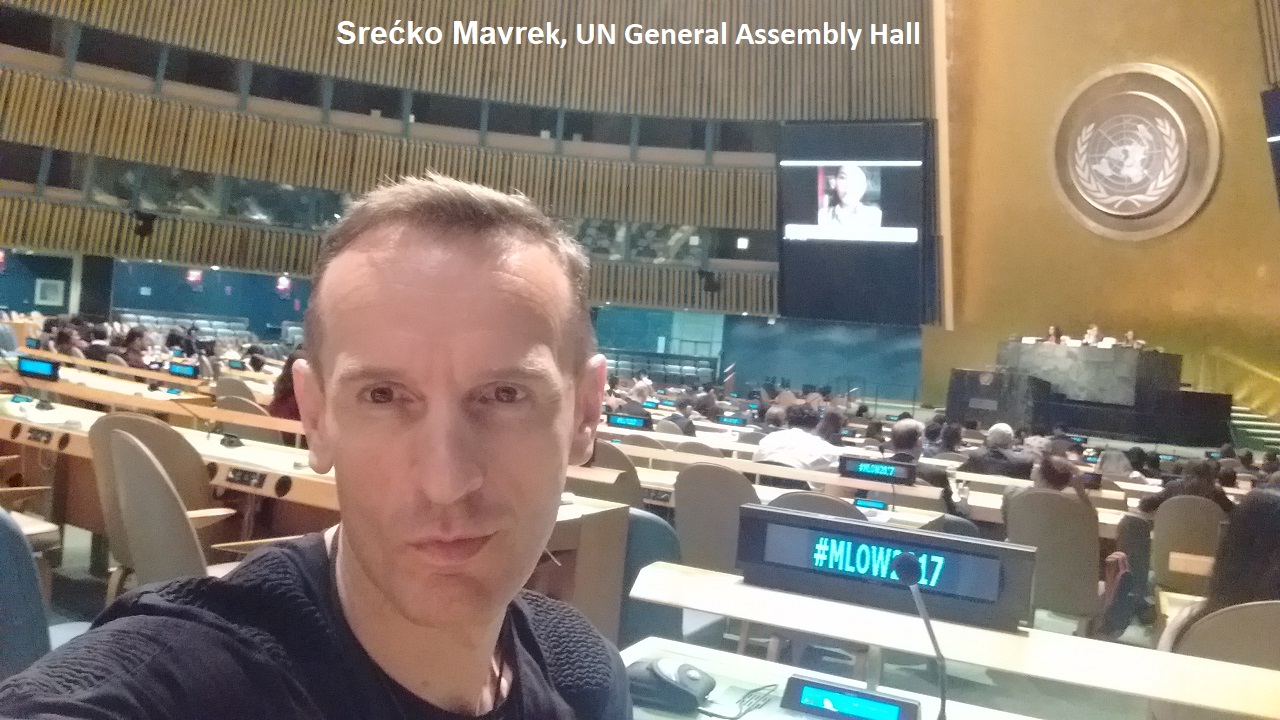
“The first session Tools and Techniques of Effective Communication for NGOs addressed civil society communication challenges and opportunities during the COVID-19 era and some contemporary issues related to disparities and discrimination. Participants were exploring the role of effective communication strategies and resources. The second session Transforming NGO Communications: From Conversation to Advocacy, Action and Social Policy addressed the issues of communications regarding complex, global, contemporary societal issues resulting in disparities and discrimination. Both sessions focused on intersectionality as the main cause of all disparities and inequalities,” said Mavrek.
He gave his opinion on the matter: “For nearly 30 years, a flawed theoretical concept of intersectionality has been one of the standard categories in over exaggerated discussions of race in American life, but its proponents sometimes have difficulties with their subjective biases. Identity politics, group identification and tribalism have not led to the social progress and inclusion, but to more divisions by ignoring individualism, character, achievements, and talents. More important questions are how to overcome fake news and social media censorship, how to improve civic culture in communication, and how to protect the right to free speech in the COVID-19 era?”
Successful Diaspora Returnee Stories: Daniel Cavka, from Australia to Split
July 25, 2020 - Continuing our look as successful returnees from the Croatian diaspora, meet Daniel Cavka, who swapped life in Australia for Split.
So many Croatians abroad dream of moving back to the Homeland, but concerns about corruption, low wages, job availability and a host of other concerns deter many. But more and more are taking the plunge, and succeeding. In the latest in our series of successful returnees, meet Daniel Cavka.
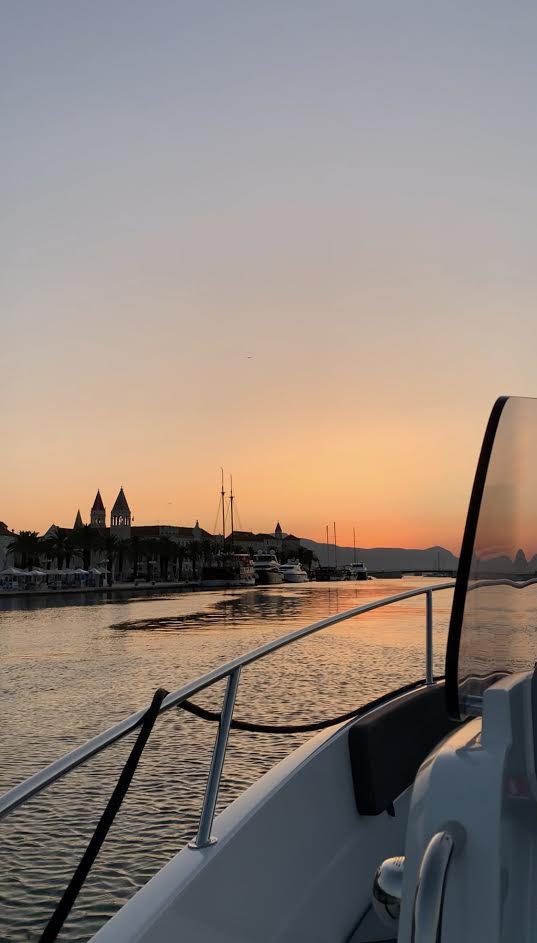
Born in Australia, returned to Croatia, something that many diaspora dream of doing. Tell us briefly about your journey.
I was born on the East Coast of Australia in a regional city called Gold Coast. It's where I lived most of my life with the exception of a couple of years in Sydney. I never really found myself comfortable in the city and after living there for about two years I decided it wasn't for me so I moved back to the Gold Coast where I worked alongside my dad on a rendering business we own. After being back home for about 12 months I came to the conclusion I needed something more and was hungry for a new challenge. This all happened around the 2018 FIFA World Cup in Russia, after Croatia beat Russia I decided to head over and watch the games in person. After the grand final loss to France I decided to head over to Split and visit family for a week. A few days before I was due to head back to Australia, two friends visited Croatia. They were heading over to Hvar and asked if I'd fancy coming along for the trip to which I couldn't say no. I started making my way to Split Ferry Port, only to be told that I in fact had to meet at the airport because the boat was leaving from the beach below Zračna Luka. I made my way over there and met them where I was then guided to a speedboat, I said what's this to which my friends told me was our mode of transport to Hvar. The rest is history, my brain started working overtime thinking about the possibilities of starting my own transfer service, and here I am....
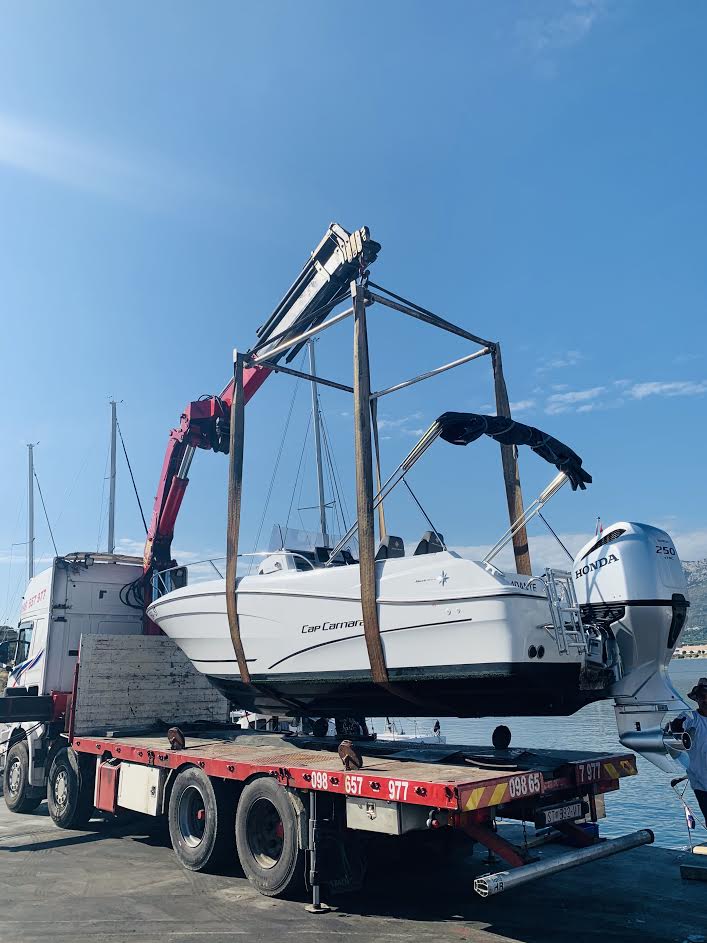
Looking back, what were your hopes, expectations and fears about moving to Croatia?
I knew what I wanted, a Nautical Tourism business operating out of Split and servicing the entire Croatian coast through both company-owned and partner vessels. I love Croatia, the old towns and crystal clear waters had me jumping at the idea of knowing I could actually live in such an incredible part of the world, so my expectations had already been realised through my desire to be here. I'm now 26 but the decision to start the business came to me at 23, so my fear was focused more on what if I don't go and what could have come from it had I moved to Croatia. I would be left wondering and when I played that scenario in my head I didn't like it one bit. So as far as I was concerned I had no real fear, I was just ready to embrace the risk of moving to Croatia and hungry to see my goal become a reality.
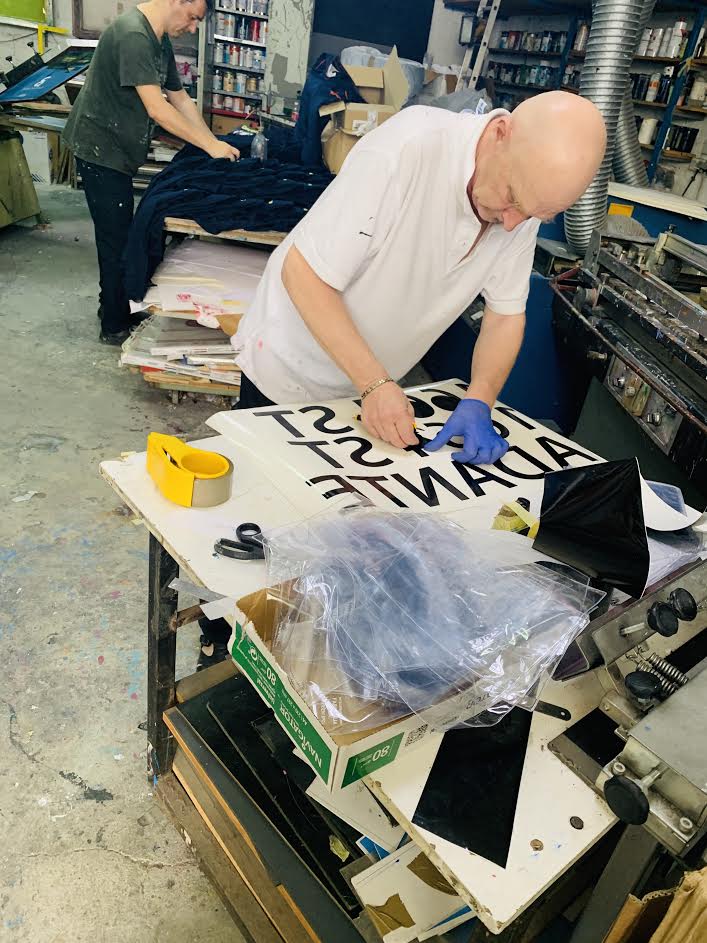
How supportive was your Croatian community back home at the time?
The people I knew in the Croatian community were not so supportive of the idea. However, I couldn't have asked for a more encouraging family, they threw all of their support behind me.
What were the main differences in what you expected to find in Croatia and the reality of living in Croatia?
I used to visit my family who live close to Split yearly, hence I was quite aware of the living conditions so from that aspect there were no major shocks for me. There were definitely major shocks when it came to starting a business, which I don't want to comment on too much as every country has its own sovereignty and therefore right to operate how they wish. All I will say on this point is that there is a need for reform and action to make starting a business in Croatia a simpler and more efficient process. So that more and more Croatians take it upon themselves to get out there and really give life a go rather than live with the perceptions that they have no opportunity to succeed if they stay in Croatia.
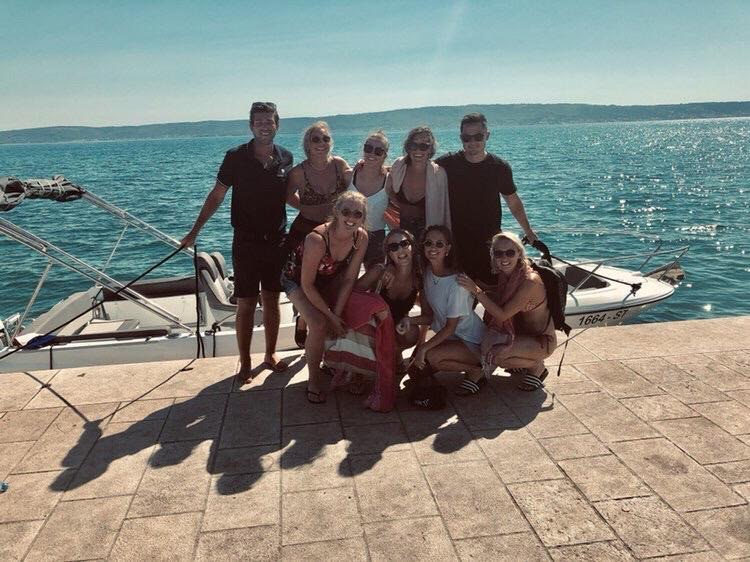
Many diaspora think of returning but few do. In truth, there is little information out there about real-life stories and help/info about the process. What advice do you have for those who are thinking about making the move?
There was close to no relevant information available online for diaspora wanting to start a business in Croatia. The information that was out there was basic and not relevant to the issues faced when trying to get up and running. I'm in the process of working on a very visually descriptive site for diaspora wanting to start a business in Croatia, to help them through the hurdles. All in all, my view was and still is just do it! For me as I've mentioned it was only a case of what if I don't do it, what could have come from it! Yes, it's been incredibly challenging when you throw the coronavirus pandemic in the mix, but it's testing me and building me up to be a better version of myself every day.
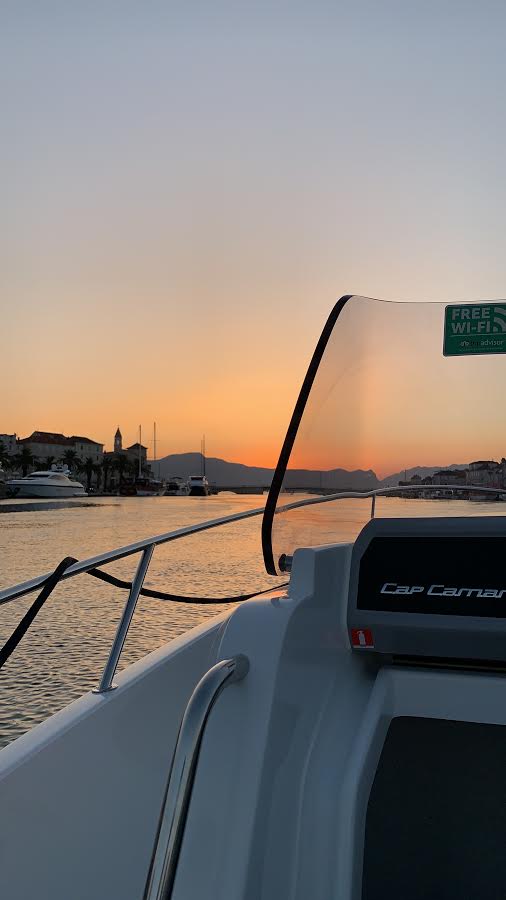
How were you perceived in Split as foreigners/diaspora moving back - was the welcome warm?
Are you crazy? You've lost the plot? Why did you decide to work here for a few months, oh wait what you opened a business here? How did you manage that, it's impossible to do that? - These were the main questions I received from people who were simply shocked out of their minds that I would lift my life up in Australia and open a business in Croatia. Yes, the quality of life from a work perspective is different, and the typical relaxed Dalmatian response to anything that happens takes some getting used to. However, the quality of life in Croatia isn't as bad as Croatians make it out to be! It all comes back to how motivated you are to achieve the goals you set for yourself. Croatia is the best playground for Nautical tourism in the world, nobody can deny that, and if they do they've clearly never been to the Croatian Coast and experienced it for themself. So for me the question was more like... why would you not start a business in Croatia?
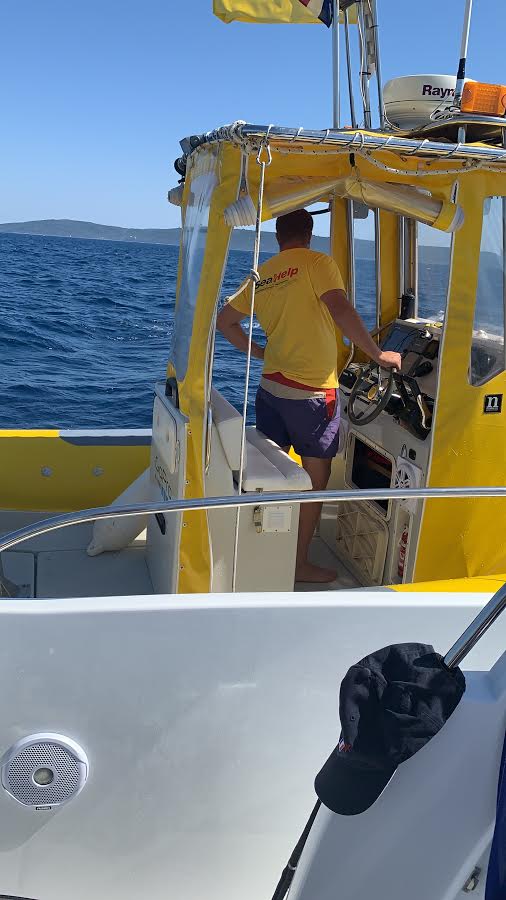
What are the keys to success in doing business in Croatia in your opinion?
Well, for me it was quite simple - I love to embrace risk and know how to keep focus on the original goal I set for myself. So to get there I quickly found out I had to remind myself that if it's attainable through persistence and resilience I can't settle for a mundane reality. This is a motto you have to stick to through the whole process, because no day and sometimes even no minute is the same. Quite literally blood, sweat, and tears will be a part of your day when trying to set up a business in Croatia, especially the Dalmatian coast. I can't offer any other way to get through the issues you'll face in starting a business in Croatia other than embracing the challenges and making it your mission to be able to say I did it.
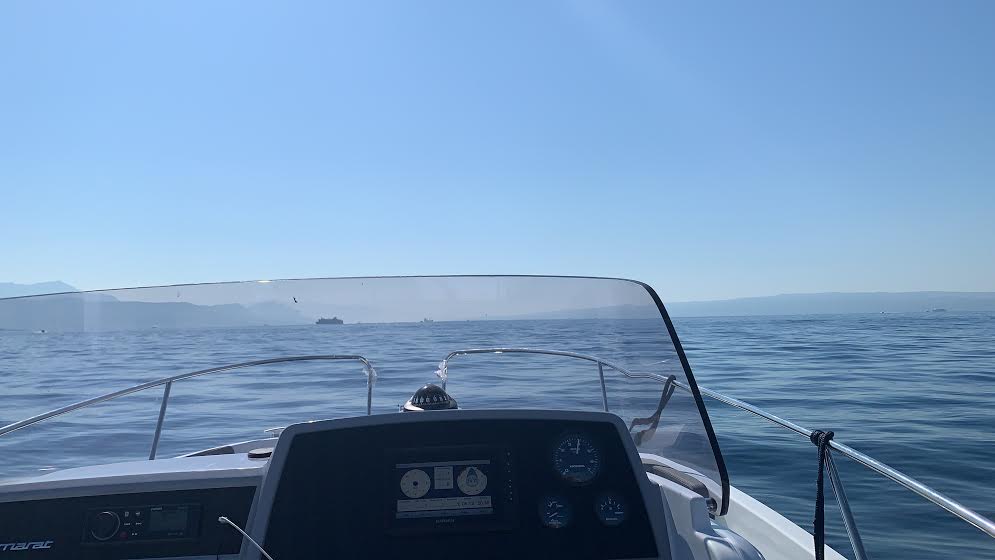
What is the diaspora community like in Split and how integrated is it with locals?
Since arriving, I've been head down and focused on getting Nautical Croatia & Nautical Adriatic up and running. So I haven't actually taken the time to reach out to the diaspora community. I'll definitely be making an effort to integrate myself more with the community.
The struggles of Coronavirus?
Well, where do I start? The business is now at a standstill and because of such a high drop in tourist numbers, the risk of border closure, and the risk of contracting Coronavirus from tourists and infecting my family I made the extremely difficult and gut-wrenching decision to not operate in 2020 and rather resume in mid-May of 2021. So I'm using this year to update everything from my website(which has just gone live!) right through to altering the specifications on the boat so that in 2021 I can bounce back stronger than ever and provide the best experience out of any other Nautical tourism business operating on the Adriatic Coast.
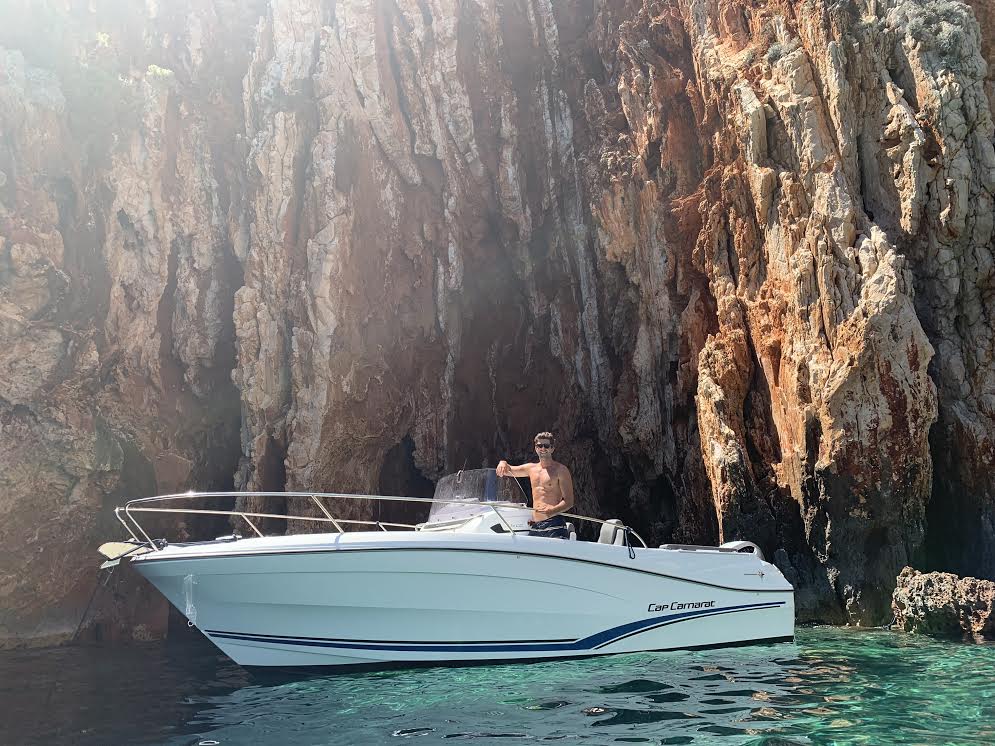
To learn more about Daniel's services and to contact him, check out his Nautical Croatia website.
For more on the Croatian diaspora, check out the TCN dedicated section.
Are you a returnee who has moved back to Croatia and would like to be featured in this series? Please contact us on This email address is being protected from spambots. You need JavaScript enabled to view it. Subject Successful Returnee
A Croatian International Educational Expert about Teaching Civic Culture
July 19, 2020 - Srećko Mavrek, a Croatian international educational expert based in New York, attended the 2020 Sphere Summit: Teaching Civic Culture Together, July 13-15, hosted by the CATO Institute, Washington DC (https://www.cato.org/).
Given the concerns related to COVID-19, the 2020 Sphere Summit was held as an online public policy and professional development seminar exclusive to educators and administrators.
“The most important goal of the Sphere Summit was to restore a spirit of civil, constructive, and respectful discourse and engagement. To that end, the Summit emphasized on the common values and objectives we hold as citizens. It is necessary to return facts, objective analysis, and independent research to primacy as the vehicles for discussion and academic, public and political debate. Discussing shared values is essential to a restoration of civic culture,” said Mavrek.

“The objectives of the Sphere Summit included civic culture, foundations, applications, understanding each other, and policy discussions. Participants explored and addressed the current state of public discourse, partisanship, and tribalism in America. They also shared tools and approaches for the classroom on current public policy issues from diverse viewpoints. Other topics included the U.S. Constitution, the rule of law, and freedom of expression. While some speakers were struggling with their own political biases during examination of the various political philosophies and understanding the viewpoints of audiences with diverse perspectives, it was really valuable to analyze key policy issues from diverse perspectives with an emphasis on shared values and common objectives,” concluded Mavrek.
The Sphere Summit featured presentations by leading policymakers, scholars, and academics, who discussed key public policy issues facing the US and Western countries today. The Summit also featured professional development workshops conducted by leaders in civic education. Featured speakers included: Anne Applebaum, Staff writer for The Atlantic and a Pulitzer‐prize winning historian, Gary Colletti, Senior Manager, Teacher and Student Programs, Bill of Rights Institute, Chelsea Follett, Policy Analyst and Managing Editor of HumanProgress.org, Cato Institute, Caroline Fredrickson, Senior Fellow, Brennan Center for Justice, Peter Goettler, President and CEO, Cato Institute, Jonathan Haidt, Thomas Cooley Professor of Ethical Leadership, Stern School of Business, New York University; and Cofounder, Heterodox Academy, Michael A. Lewis, Professor, Silberman School of Social Work at Hunter College, CUNY, and others. Two House Representatives participated in the Keynote Address on July 14 - Rep. Kelly Armstrong (Republican-ND) and Rep. Ro Khanna (Democrat-CA).
Nadean Stone: 40 Year Journey To Find Her Croatian Birth Parents
July 16, 2020 - We bring you an uplifting story about a recently published book titled "No Stone Unturned: A Remarkable Journey to Identity" by Nadean Stone, a member of the National Federation of Croatian Americans, about her decades-long search for her birth parents.
I first talked with the author in March, when she emailed me to share her amazing story that led to the discovery of her Croatian ancestry. Her story begins in Canada, where between 1945 and 1973, almost 350,000 unmarried Canadian mothers were persuaded, coerced, or forced into giving their babies up for adoption. (Andrews, Valerie: White Unwed Mother: The Adoption Mandate in Postwar Canada, Demeter Press, Toronto 2018.) Many babies were illegally given away, like a puppy at the pound, for a nominal donation to the church. Nadean shared with me that, “On Christmas Eve, 1952 I became one of those babies. From the moment my grandmother disclosed the story of my adoption, my birthday wish every year was to find my mother.” Nadean started her search in 1973 when she was 20.
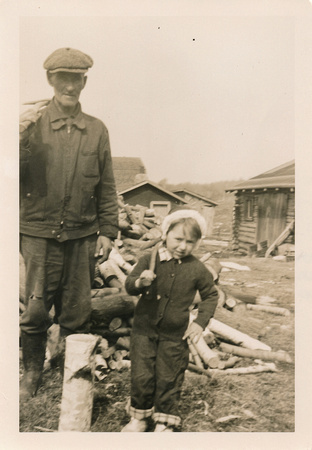
Nadean with her Great-Uncle
In 2008, the Province of Ontario changed its law, enabling legally adopted persons to access their birth registration records. That document usually contained the birth mother’s name at the time of the child’s birth, her home address, age, religion, nationality, and professional occupation. Armed with that information, the adoptee could then search Ontario databases, telephone directories and in time locate their birth parent. Birth father names were seldom placed on this document as it was not a requirement. After many communication exchanges with the provincial government, the hospital where Nadean was born and the Children’s Aid Society, she discovered that adoption had never taken place. Nadean was simply given away by Mother Superior at the hospital. This resulted in denial of her access to any birth records.
In 2013, Nadean increased her search efforts with an intense focus on DNA. She had concluded that “DNA became my only source of hope. In December 2013, I tested with 23andMe but didn’t know how to proceed with a search. However, the DNA indicated that I was of Eastern European descent, with one Croatian parent. A DNA genetic genealogist, Olivia, found my post on a Canadian adoption website in February 2017 and offered to assist. Olivia had me test on Ancestry to ensure we covered all possibilities and Olivia downloaded my DNA info to GEDmatch, a website designed to assist adoptees.”
Olivia and Nadean divided their responsibilities. Nadean sent messages through both Ancestry and 23andMe portals to all her new cousins asking them to share their DNA, family surnames, residences in Europe, the US, and Canada, family trees. They explained the mission to find her birth mother. Nadean messaged more than 150 cousins at numerous times during the journey. As the months progressed, many of the “cousins” became invested in her search. They exchanged personal email addresses and telephone numbers, creating a “Village of Cousins” desperate to help “the baby find its mother.”
Ancestry DNA found Nadean’s birth father’s family in June 2017 when his daughter tested. I asked Nadean how it felt to hear the news and she exclaimed that "I never thought I would find my birth father. I thought the chances of finding my mother were slim and even if she was alive, she might not be well or have the mental capacity or desire to share his identity. I must say that finding him first through DNA, was truly a miracle." It turned out that Nadean’s father, Vinko Tatarević died in 2000. Vinko was a Croatian fighter pilot during World War II, a Croatian Ace who was featured in a book called Croatian Aces of World War II. Vinko is considered to be a hero in his home town of Mostar in Bosnia and Herzegovina.
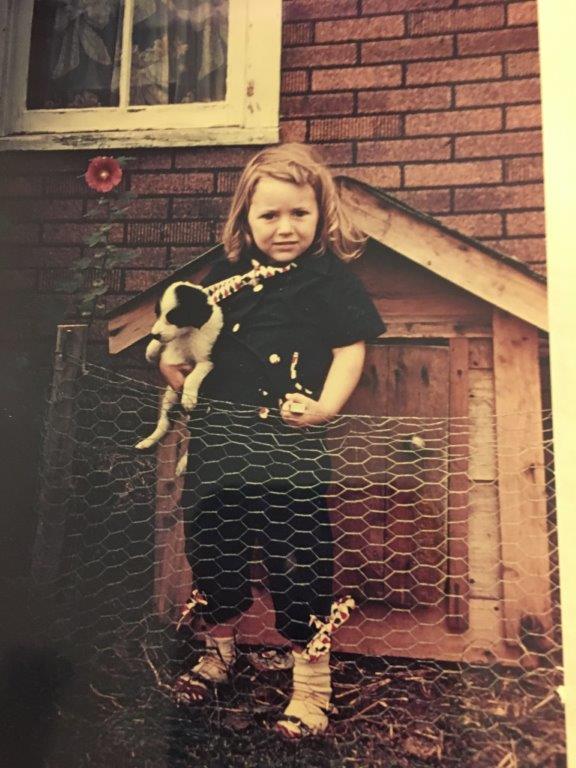
2-year-old Nadean on the farm
In finding Vinko, Nadean and Olivia zeroed in on the remote town he immigrated to in Canada in the early 1950s. Nadean and her husband Bill traveled there in August 2017, set up in the town’s library and texted addresses of names and addresses of possible family members from 1951, 1952, and 1953 telephone directories to Olivia who compared them to her spreadsheets. On their last day in town, they abandoned the library and utilized detective skills. They sought out elderly Croatians who might have known her birth parents in 1952. Nadean shared her story and explained that finding her mother was her only remaining wish in life. Nadean shared that “We found the house where Vinko lived during the 1950s and took photos and we found Peterson Electric where he had worked." The ownership had changed and they no longer had his employment records. They visited the Croatian Hall, the Croatian Catholic Parish, and the Multicultural Association sharing all around the purpose of their visit. Bill found a listing that day as well for the Croatian Recreational Center. Nadean called and left a message with their departure imminent.
There was a big break when Leonard, an elderly Croatian man called with the news later that evening. Leonard said he knew Vinko very well. They had both worked initially at the bush camps upon arrival in Canada. Although Vinko was older than Leonard, Vinko had been very good to him and had taken care of him. He told Nadean that Vinko was very handsome and all the women in North Bay were in love with him. Leonard did add that he did not know any of Vinko’s girlfriends.
Although not successful on that trip, Nadean continued in her dogged efforts to find her mother, resulting in an astonishing journey with a miraculous ending. Nadean started a memoir in 2017 as her life was already replete with unbelievably daunting life challenges, including a harrowing escape from a Caribbean island. As one reviewer noted, “This book is a MUST READ. Never judge a book by its cover. Don’t let the beauty and softness of Nadean fool you. She is tough as stone. No Stone Unturned is a real-life story that contains all the elements for a great movie: Real-life drama, pain, suspense, romance, royalty, politics, and more. You will cry, laugh, and get angry. Thank you Nadean for being transparent and opening up your soul to share such personal details.”
Her goal in writing the memoir is to use it as a platform for change. Nadean hopes to bring attention to the issue and to petition the Province of Ontario to amend the law enabling non-adoptees equal rights to their records. She has consulted with a leading civil rights attorney in Toronto who is interested in this precedent-setting case. In July 2018, Nadean filed a petition with the UN Commission on the Rights of the Child illuminating numerous Articles of the UN Convention that the Province of Ontario has violated in its treatment of illegally adopted children.
It was over several conversations with the author that the objective of her lifelong journey and her book became clear and Nadean said it best last week with her quote that, "My goal is to inspire readers to find faith, hope and the courage to persevere, despite the odds and to never give up." Her memoir, No Stone Unturned – A Remarkable Journey to Identity is available on Amazon. She also created a Birth Search Directory on her website to assist adoptees in their search, www.nadeanstone.com.
Nadean's book is a riveting story that I highly recommend to all readers who want to be inspired at this time of a pandemic. It is a triumphant memoir of courage and perseverance, a story of love on many levels, and proves the miraculous and joyous ending we can achieve when we never give up!
If you want to learn more about Croatian diaspora, follow our dedicated section.
A Croatian International Expert on Safely Reopening America’s Schools
July 12, 2020 - On Tuesday, July 7, the White House hosted a half-day Summit on Safely Reopening America’s Schools focusing on reopening America’s schools in safe ways that respect the holistic health and learning needs of America’s students. The Summit included state and local leaders, health professionals, teachers, administrators, parents, and higher education institution leaders from across the USA. The live broadcast of this event was attended by nearly 700 attendees. Among them was Srećko Mavrek, a Croatian educational expert based in New York, who has officially represented Kappa Delta Pi International Honor Society in Education at the UN Department of Global Communications. Communications since 2016.

“In the weeks ahead, educators and government officials at the state and local level will have to make important decisions about when and how to safely reopen America’s schools. Therefore, it was very important to initiate the national dialogue about safe reopening. Everyone agrees that students should return to the classrooms as soon as possible, but there are also several main disagreements regarding the safety concerns, learning models and financial issues. The Centers for Disease Control and Prevention (CDC) released detailed guidance to ensure school officials understand how to prepare for, prevent transmission of, and react quickly to coronavirus cases within an education system,” said Mavrek.
“President Donald Trump and the federal government demand that schools must reopen, and they must be fully operational, i.e. five days of classes per week. He added that America’s Coronavirus mortality rate is down tenfold from the peak of the crisis. Education Secretary Betsy DeVos said the Administration expects children to be back in their learning environments this Fall and urged decision-makers to think practically about the consequences if children do not return to the classroom this year. She added that is best to leave to education and community leaders to determine how the schools will reopen.”
“Their opponents argue that premature full school reopening could lead to further spread of the coronavirus. They therefore support different models of blended learning, i.e. a few days at school plus a certain number of distance learning days. On Wednesday, New York City Mayor Bill de Blasio and Schools Chancellor Richard Carranza unveiled their "Blended Learning" plan for the city's 1.1 million public school students. The mayor noted that most schools will not be able to have all students in school at the same time. Classrooms will be limited to about nine to 12 students. That's instead of the average class size of 30 students. Chancellor Carranza said that the plan to bring students back into school buildings requires the use of PPE and social distancing. He added that parents can choose only distance learning and that later in the year they will be able to request a transition to combined teaching. Parents will have opportunities throughout the year to transition their child into one of the in-person models. If any family wants to switch from the "Blended Learning" to "All Remote Learning" they may do so at any time.That doesn't necessarily mean that schools will reopen because Governor Andrew M. Cuomo also announced on Wednesday that New York State will decide during the first week of August whether schools will reopen in the Fall. "
“Distance learning was introduced because of the extraordinary circumstances and it was a big shock for students, teachers and parents to adapt to such a sudden hard situation. I think that students with learning difficulties lose the most because many of them cannot cope with distance learning or stay behind because of various factors. On the other hand, distance learning can be beneficial for students who can learn at their own pace. Some of my college students did very well last semester. In addition, the question is how further social isolation and lack of social interaction will affect students’ mental and social health. The situation is uncertain for now, but it is quite certain that the federal states and some large school districts will independently decide on the safe reopening of schools and learning models. I think there will be a lot of complications with the organization of the blended schedule because there are many unresolved issues, e.g. how to learn and teach while wearing face masks, how to effectively plan scheduling for the Fall, how will school districts handle the question of student transportation, and if there will be enough teachers needed for reduced classes," said Mavrek.
To read more about lifestyle in Croatia, follow TCN's dedicated page.
Annual National Federation of Croatian Americans Cultural Foundation Meeting Held
July 2, 2020 - If you're surprised to hear that the Annual Assembly of Delegates of The National Federation of Croatian Americans Cultural Foundation took place over Zoom, one has to wonder what you've been doing for the past six months!
The National Federation of Croatian Americans Cultural Foundation celebrated its 27th Annual Assembly of Delegates meeting, and not in Philadelphia as planned, but with three virtual zoom events. This year within a COVID-19 pandemic, the weekend opened with a virtual "Happy Hour" zoom celebration on Friday, June 5th, and a fundraiser for Croatia's Special Olympics. We were honored to have specials guests including world-famous winemaker Miljenko Grgich, filmmaker Nikola Knez and singer, Tony Butala of The Lettermen all zoomed in and spoke to our sixty participants.
The virtual guests were first entertained by the Croatian Fraternal Union's 354, The St. George Combo consisting of Derek Hohn, Marlene Luketich-Kochis, Bernadette Luketich-Sikaras, Marko Kochis and Dan Kochis got the party started with two Croatian songs: "Zdigni Casu." and "Jabuke." Annie Bosko, 2019 NFCACF "40 Under 40” winner closed as a featured entertainer and spoke to explain how her song "The Fighter" became her tribute to the COVID-19 front line workers! Annie's song was a big hit and as her powerful video played on the screen, a few tears were shed by several Croatian Americans.
Author Nadean Stone discussed her book "No Stone Unturned: A Remarkable Journey to Identity" which has been called "riveting" and received an Amazon 5-star review. Nadean's 44-year emotional roller coaster search for her identity brought over 100 Croatian cousins into her life. Nadean was finally able to finally track down her birth parents though she was thwarted for years by Canadian adoption laws. Nikola Knez, the filmmaker spoke about his recent film "Operation Storm" which the NFCACF showcased on Capitol Hill in October 2019. Mirena Bagur, representing Premium Wines of Boston shared her lifelong respect to Miljenko Grgich with a few stories. Mirena’s firm sells wonderful Croatian wines including Plavac Mali, Pošip, Plavac Mali Rose, and Saints Hill Dingač too.
Tony Butala, the founder and singer of The Lettermen made a guest appearance and shared a few career highlights about his illustrious career which included nine gold albums. It was discussed too how the song "The Way You Look Tonight” was a hit by The Lettermen in 1962 and two years before Frank Sinatra ever recorded it. Tony Butala won an NFCACF Lifetime achievement award in 2016 and has been active over the years within the Croatian American community and has headlined over fifteen successful Croatian fundraisers.
Andrea Novak Neumann was the executive producer of the sixty-minute NFCACF Croatian Happy Hour production and Eric Gregrich, managed the auction bids and items throughout the program. The auction winners and top bidders were Joe Brajevich, Marko Buljan, Carol Gartland, Mirena Bagur, Sanja Newman, Vedran Joseph Nazor and Dr. Damira Caric.
NFCACF thanks all the sponsors for the night: Grgich Hills Winery; Croatian Premium Wines (Boston); National Croatian Fraternal Union office; Herman Mihalich with his PA Dad's Hat Rye Whiskey, Nikola Knez (DVD films); Nena Komarica with her donation of Katunar Zlahtina wine. Andrea Novak Neumann introduced to attendees, the NFCA Clothing line which can be found at the website: https://www.companycasuals.com/NFCACroatianAmericanApparel/start.jsp
On Saturday morning, June 6th, the 27th Annual Assembly of Delegates meeting commenced and with thirty delegates on line for the private meeting. President Steve Rukavina opened up the morning proceedings with his annual State of the Union address with a focus on many of the past year’s priority activities. He mentioned that the organization is involved now with the management of two Catholic Church restoration projects in Croatia. He discussed: partnering with American Airlines and Croatia's Tourism Ministry regarding non-stop flights to Dubrovnik; raising $21,000 for the MUO-Arts and Craft Museum in Zagreb for restoration after the earthquake; arranging six "40 Under 40” award events; the on-going DTT and the Visa Waiver program activities and an October Croatian Congressional Caucus event. The NFCACF President stressed the significance of our continued dialogue with both the US and Croatian ambassadors and with the US State Department. He mentioned his very successful trip to Croatia, the summer of 2019 which included two dinners with the US Ambassador, a major Special Olympics event in Gospić, and meetings in Dubrovnik. He concluded with thanking the Board Members for all their volunteer time, keeping the organization very active and making a difference on a shoestring budget.
Next, the NFCACF National Treasurer, Eric Gregrich presented all the financial balances, listed all the group’s physical assets, and predicted a "budget neutral" year of 2020. The NFCACF committees gave their virtual reports live to all the delegates. The first one was about by-laws by John Kraljic with a few new clauses especially dealing with virtual-telephonic conferences. The BiH Croat Task Force with Zvonko Labas and Biljana Lovrinovic Abel shared a few updates about projects in motion and the recent controversy about a Mass in Sarajevo to honor the victims of the Tito Communist regime. The Special Projects committee members, Steve Rukavina and Vedran Nazor presented details about two new Catholic Church Restoration projects in Jelsa (Hvar) and in Racisce (Korcula) that the NFCACF are partnering with. The Social Media Chair Adam Radman outlined new developments with Facebook, social media and with the website. The Sports Hall of Fame Chair, Vedran Nazor highlighted the plans and process over the next 12-15 months for this exciting initiative. Dr. Dinko Podrug, Chair of the Art Committee shared updates about our collaboration with the MUO-Arts and Craft Museum and about our three NFCACF paintings there. He was very pleased that we were able to raise $21,000 for the relief fund for the Museum.
The delegates heard from Anna Maria Sicenica regarding the 2019 minutes from the Pittsburgh annual meeting. Also, a Croatian Fraternal Union report came from CFU President Ed Pazo with many highlights especially about the 125th Anniversary weekend in September 2019 in Pittsburgh. The Washington Report was next from NFCACF Public Affairs consultant, Joe Foley, which included Visa Waiver and Double Taxation Treaty updates and details about a Capitol Hill Croatian Congressional Caucus event in October 2019. The delegates heard a Medical Tourism and ACAP update from Dr. Steve Pavletic and a report by Nena Komarica about some proposed collaboration with the Archeological Institute of America and their commitment to support Zagreb's Archaeology Museum.
Next, the delegates elected the 2020-2021 Officers and Board members first re-electing all officers from the previous year including Steve Rukavina-President (PA), Andrea Novak Neumann-Executive Vice President (MN), Frank Jerbich-1st VP (IL), Mario Spalatin-2nd VP (FL), John Kraljic-3rd VP (NY) and Eric Gregrich-National Treasurer (MD). Finally, the Executive Committee was finalized with the election of officers-at-large: Bernadette Luketich-Sikaras (PA), Biljana Lovrinovic Abel (OH), Carolyn Bruno (MN), Zvonko Labas (MD). The election of Anna Maria Sicenica (PA) as the National Secretary, completed all the positions on the Executive Committee.
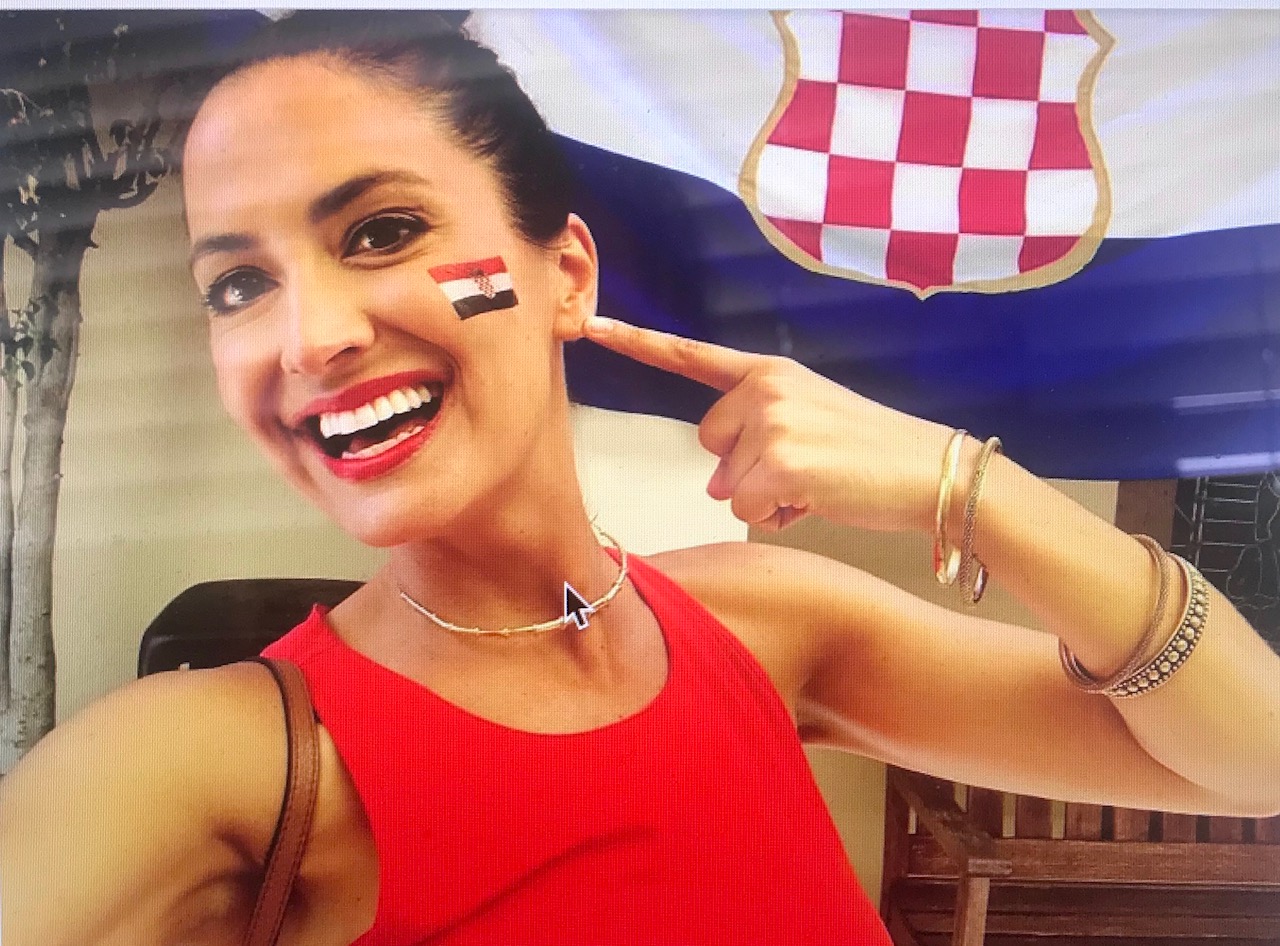
Annie Bosko
Also, the following delegates were elected to the NFCACF Board including Lydia Antoncic (NY), Vido Artukovich (CA), Marko Buljan (CA), Marko Kirn (MN), Nena Komarica (NJ), Jim Kresnik (NE), Tatjana Mustac (NY), Tom Mustac (NY), Vedran Nazor (PA), Sanja Newman (MD), Dr. Steve Pavletic (MD), Mark Plavetic (MD), Adam Radman (DC), Jelena Rudela (NY), Tom Steich (MD) and Ron Zivic (OH). The CFU delegation of President Ed Pazo, Franjo Bertovic, Derek Hohn, and Michael Ricci were delegates at this meeting.
The Saturday afternoon public webinar with sixty participants first featured the US Ambassador to Croatia, Bob Kohorst. The US Ambassador gave a detailed report on several major issues of interest and first saluted the 27 years of US-Croatia relations. He cited the overall significance of US-Croatia NATO relationship. He discussed the many obstacles facing the efforts to secure the Avoidance of a Double Taxation Treaty (DTT) and why it's more complicated for a small country. He outlined the many other priority issues that keep the U.S. Treasury Department from negotiating with Croatia at this time and with over 100 countries already on their DTT list. There’s better news with the VISA waiver program which may be possible this year with hopes Croatia will achieve a less than 3% refusal rate and complete all the Department of Homeland Security protocols and requirements by September 30th. Ambassador Kohorst was very positive about how Croatia handled the COVID-19 health challenge. Finally, he spoke positively about Croatia's recent success securing contracts for their floating Liquefied Natural Gas (LNG) terminal, near the island of Krk and which in his estimation has become an important security issue and the existence should result with less energy reliance on Russia, for all of Southeast Europe.
Ambassador Pjer Šimunović spoke about currently holding the seat of Presidency of the European Council and unfortunately so many events had to be postponed due to the pandemic. He explained how Croatia's EU Presidency then became more "crisis" management than the planned focus on future programs and policies for the EU. He detailed how the EU intends support to help the economy and tourism of Croatia and all EU countries to offshoot the expected losses due to the COVID-19 pandemic. The Croatian Ambassador shared that the Washington, DC Embassy will continue all their work with the on-going DTT and VISA waiver projects.
The former US Senator Mark Begich of Alaska spoke about his official role in Alaska with COVID-19 economic development initiatives, especially about dynamic supply chain links. Mark is very proud that his father was the first Croatian American Congressman and mentioned his nephew Nick, a NFCACF "40 Under 40” winner, has a successful business located in Zagreb. The former Mayor of Anchorage mentioned he would welcome the chance to get involved with a Croatian project in the future.
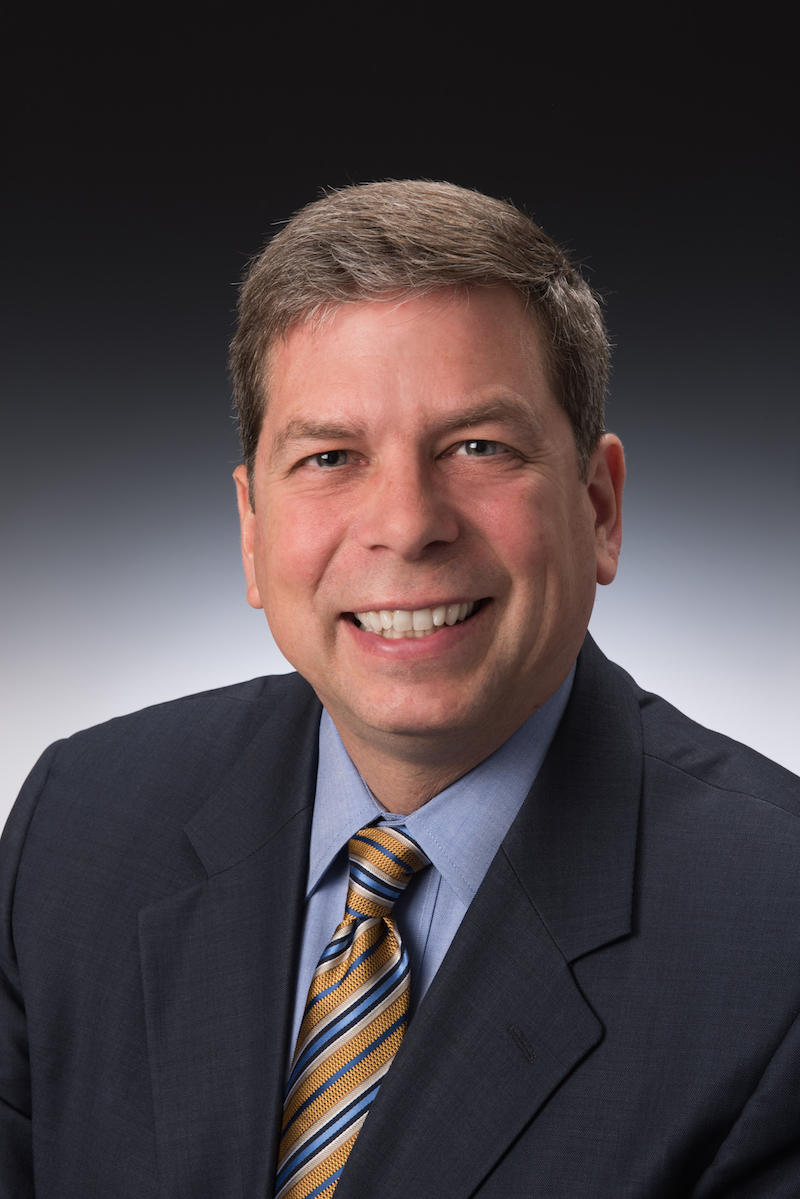
Former US Senator Mark Begich
National CFU President Ed Pazo spoke next and shared some wonderful highlights from the 125th anniversary. Brother Pazo was very pleased that Madam President Kolinda Grabar Kitarovic attended the September 2019 banquet with 675 others, including Pittsburgh's Mayor Bill Peduto, Allegheny County Executive Rich Fitzgerald, and prominent Congressman Mike Doyle. The CFU President cited how proud he was of the CFU Earthquake relief fund which raised $150,000 kuna and was sent recently to the Croatian Red Cross.
The public webinar finished with three brief presentations. First, from Joe Foley, the NFCACF Public Affairs Consultant shared details and updates about Capitol Hill activities. Then two partnering organizations based in Zagreb spoke next: Sladjana Tatic, from Croatia's Special Olympics, talked about their successful six-year partnering relationship with the NFCACF and their great appreciation of all the NFCACF financial support; Miroslav Gasparovic, from the MUO-Arts and Crafts Museum, shared details about the earthquake cleanup and their appreciation for our relief donation and for showcasing a few leased NFCACF paintings housed there.
There was no closing dinner this year during this pandemic crisis and there are plans for the 28th Annual Assembly of Delegates to be held in Philadelphia, in June of 2021. The NFCACF organization thanks everyone whose energy, support, and virtual vision made this annual meeting a unique success at a surreally challenging time for all of us.
To read more about Croatian diaspora (and the Croatian Americans), visit our dedicated Diaspora section.
Interview with Ruza Studer Babic: Croatian Diaspora Also Wants Croatia 2.0
June 20 - In addition to strong support from parties from across the political spectrum, the Glas Poduzetnika Association received clear support of the Diaspora's new list, led by Ruza Studer Babic. Josip Hrgetic, one of the founders and the director of the conference Meeting G2 for Croatians from the Diaspora, intended for all business people who wish to connect their homeland and the expatriated Croatia better, is also on the list led by Ruza Studer Babic.
The conference has taken place for five years already, and Ruza was the regular guest. The impression from these conferences is that Croats living in the Diaspora think in a very entrepreneurial way, having the same values which the Glas Poduzetnika Association points out in their postulates. For these reasons we also wanted to do a short interview with Ruza:
How did you come up with creating a new list that will offer an option in the electoral division for the Diaspora?
Emigrants, returnees, and immigrants face many problems and are often left on their own in these situations. I have been actively engaged in issues and challenges of emigration for the last seven years. Many ex-pat congresses and conferences I participated in and met many expatriates signal that many are ready to invest in their homeland. All this, along with the ineffectiveness of political structures concerning emigration, is the reason why we started a list, the goal of which is to reach the emigrants and encourage them to go to polls.
You very quickly agreed with the UGP Pledge that we also sent to all the critical parties, how much does it match your goals?
The UGP overview is similar to our reasoning and goals. The fact that our list includes people who came from emigration to Croatia or Bosnia and Herzegovina says that we have people who have chosen their homeland. They recognized the obstacles that hinder new investors and can, with their experience, be of great help to new investors. We want to launch an entrepreneurship incubator for expatriates, wherewith the support of the state, and together with entrepreneurs, we would initiate economic projects through which they would gain access to foreign markets. We would stimulate the foreign investors to invest and the expatriated entrepreneurs' return and create work opportunities in the homeland. As an example, we would keep young people in the country.
You managed to gather Croatians from all parts of the world. What is the one thing that unites you, and do you think this will increase your chances of entering the parliament?
Keeping in mind that we did not have much time, the ex-pats' readiness to be a part of this is admirable. The love for the country unites us, and we all have the same goal — to stimulate the return of ex-pats, to top the trend of emigration, and to encourage foreign investors to invest in Croatia.
How are Croatian media treating this initiative so far?
Upon sending a press release to all the media, we received four responses expressing the willingness to donate space for our initiative. For major media, such initiatives do not seem to be of interest.
National Federation of Croatian Americans Relief Fund For MUO-Art Museum in Zagreb
June 6, 2020 - The 140th-anniversary celebrations for The Museum of Arts and Crafts, (MUO, Muzej za Umjetnost i Obrt), which started on 17th February were interrupted by a strong 5.5 magnitude earthquake. Croatian Americans decided to help.
The MUO Museum sustained considerable damages from the March 22nd Zagreb earthquake on that Sunday morning. The series of aftershocks caused considerable damages to the building and its artwork. The building has three severely damaged zones: the south wing corridor in the first and second floors, the extension along the north wall of the south wing, and the southwest corner of the mezzanine on the main staircase between the ground and the first floor. The MUO Museum sustained architectural damages but also many objects and artifacts of value and importance for the cultural heritage of Zagreb, Croatia, and beyond were also damaged. In the efforts on deciding to help Zagreb with the earthquake damages, the National Federation of Croatian Americans Cultural Foundation leadership decided it was best to focus on our group's contribution to MUO. Our strong relationship with MUO Museum dates back to December 2017, in a ceremony, where the museum put on display "Madonna and Child", a major work by Dalmatian-Venetian painter Andrea Schiavone (also known as Andrija Medulić), which was donated to the NFCACF by Dr. Dinko Podrug, and is now leased to the museum. Fortunately, the painting and two other NFCACF-donated items remained undamaged.
Andrija Medulic Schiavone Painting: Bogorodica S Djetetom
On April 2nd, the NFCACF started a modest fundraising drive to promptly gather and send to MUO, by appealing to NFCACF members to send a tax-deductible donation to NFCACF, with a note for the “MUO Earthquake Fund”. It was good news that one NFCACF supporter extended $5,000 of matching funds to jumpstart our effort on April 4th. The NFCACF raised funds from the group's quarterly newsletter that was sent to all our members, 300 personal emails, and through Facebook outreach. It was recognized that the MUO Art Museum had urgent needs for these funds to prevent further damage and to start with the needed restoration.
The NFCACF President Steve Rukavina proudly stated that "We are pleased to announce that we raised $21,000 US dollars for our NFCACF-MUO Relief Fund." It should be noted that all funds will be spent to clean, repair, and perform maintenance to protect and enhance the Museum’s art collections. We would like to acknowledge that major donations for this MUO Art Museum relief fund were received from Dr. Dinko Podrug, from Peter and Jessica Frankopan and The Staples Trust and from Kresimir Penavic and his AIC Foundation and from one anonymous donor.
The NFCACF will host it 27th Annual Assembly of Delegates June 5-6 and the public webinar session on June 6th will include featured guest speakers: US Ambassador Bob Kohorst, Croatian Ambassador Pjer Simunovic, former US Senator Mark Begich and Croatian Fraternal Union President Ed Pazo and MUO Art Museum Director Miroslav Gasparovic. This year's assembly will be all virtual meetings and on June 5th, Croatian Americans will host a "Happy Hour" as a fundraiser for Croatia's Special Olympics.
Mark Plavetic, the NFCACF 2020 Rudy Perpich Summer Fellow is a co-author of this article.
To find out more about the Croatian diaspora, follow our dedicated section.
Corona Voices in the Croatian Diaspora: Arijana from Ferdinandovac in Vietnam
April 18, 2020 - With as many Croatians living abroad as in the Homeland, what are the diaspora experiences of self-isolation? In the 8th of a new series, Corona Voices in the Croatian Diaspora, here is Arijana Tkalcec in Vietnam and originally from Ferdinandovac.
Last week TCN started a feature series called Foreigner Self-Isolation In Croatia: Do You Feel Safer? I can honestly say we have never had such a response or so many incredible contributions. The countries of origin of these expats in Croatia literally from all over the world. So far we have had submissions from expats from Romania, USA, Ireland, UK, Mexico, Argentina, Spain, Singapore, Holland, Canada, India, Hong Kong, Venezuela, Latvia, China, Honduras, Hungary, Moldova, New Zealand, Japan and Germany. You can see all their stories here.
Given the success of the series (still going strong) and large interest, it made sense to expand it to look at this from another angle - how Croatians abroad are coping where they are. If you would like to contribute your story to Corona Voices in the Croatian Diaspora, please find the submission guidelines below. Next up, Arijana Tkalcec in Vietnam and originally from Ferdinandovac.
I'm Arijana, a full-time traveler in the making. I got my masters in journalism but decided to go in a bit different direction from traditional journalism. Coming from Ferdinandovac, a small village in Croatia, I've always dreamt about exploring the world. My itchy travel feet don't let me stay in one location too long. Traveling is my passion, and I'm always on the lookout for new adventures (I especially love treks, waterfalls and van life). I'm a fan of slow travel, which enables me to experience the best of the country I'm in. I love learning about other cultures, getting to know locals, and visiting places without a need to rush.
If you want to follow my adventures, here is my Instagram page: @arijana.tkalcec (https://www.instagram.com/arijana.tkalcec/)
My website: https://shippedaway.com/
Firstly, how are you? Are you alone/with someone? Tell us a little about your situation and sanity levels.
Hello from Da Nang, a beautiful coastal city in Central Vietnam known for its sandy beaches. The city is also popular amongst digital nomads as it has everything needed for a normal life.
At the moment, I'm great, trying to make the most out of the current situation. It took some time to process what's actually happening, but it's all good now. However, I miss the adventure so much! I hate being closed inside.
I'm here with my boyfriend Matej (he's Slovenian), and our plan was to travel around South East Asia for seven months. First, we were in Bali for a month, and now we're willingly 'stuck' in Vietnam. I guess our trip is put on hold for a while. We're still sad about that as we had big plans, but we still hope the situation will get better soon so we can continue traveling.
When did you realise that corona was going to be a big issue?
When we started our journey in January, the coronavirus was already well known. But nobody saw it as a huge threat as it was still mainly in China. When we entered Vietnam on February 26th, there were 0 active cases (16 were reported previously, but all of them were cured). For about two weeks, we explored freely, and everything was normal. We were leaving Can Tho in Mekong Delta, heading towards a small coastal town Mui Ne, when the situation started to change. The cases in Europe began to rise insanely, and there were already reported cases in Croatia too. Vietnam right away started putting some restrictions on foreigners coming from high-risk areas.
When did you realise that corona was going to be a big issue in Vietnam in particular?
Around March 19th our hotel in Mui Ne put the notice about the new case reported 17 kilometers away from our town. That's when the situation here slowly started to change. Restaurants began closing down, hotels closed or had limitations about the number of tourists they were taking in, etc. But those were small changes, and we (as well as other tourists) weren't bothered with that. We continued our trip to Dalat, and there's where we realized that situation is way more serious than we thought. First of all, locals were scared of us as many new cases in Vietnam came from abroad (whether it's through foreigners or Vietnamese coming back from overseas). They would pull up the mask when we were passing by, we even got denied entry to one local restaurant, etc. It wasn't the most comfortable situation. Then masks became mandatory, Vietnam started closing borders, there was a massive cancellation of flights to Europe – it was evident that in the next few weeks/months won't be the most pleasant ones.
Give us a timeline on when and how life changed.
Considering the situation, in Dalat we had to make one of our most significant decisions yet: should we stay here or go home. It wasn't an easy decision for sure, and it took us the whole week to make the final decision to stay. Our families support that decision 100%, and they actually think we're safer here, so they wanted us to stay.
Why did we decide to stay? Firstly, flying in this situation didn't sound appealing to us. Many confirmed cases in Vietnam were connected to flights. Secondly, we already have our ticket back to Zagreb in September from Bali. This would be an additional financial cost that we couldn't afford. The tickets were too expensive, flights were getting canceled, many people got 'stuck' at airports, they had to buy multiple tickets because of the cancelations. It was too risky. Thirdly, if we did come back to Croatia, self-isolation of 14 days was mandatory. The only place we could go to was my parents' house, and that way we could put them at risk too. Lastly, the fact that my boyfriend is from Slovenia, which was already completely closed, made even more problems.
After our final decision to stay, we had to act fast. It was a matter of time when the country would go on lockdown, so we had to choose the place we want to 'get stuck in.' We chose Da Nang. To get there, we took a 6 hours bus to Nha Trang, where we stopped for a few days. The situation there was much different than Dalat. Everything was full of tourists (mostly Russians), many people didn't wear masks, the beach was full of people. We weren't sure what to think about that because the rest of the country was in a full-on panic, while here everything was so relaxed.
It took another 10 hours to reach Da Nang with the train. There was a shocking scene when we entered the Da Nang train station. People in full-on blue suits accompanied by police were waiting at the entrance. One guy held an English sign just for us as we were the only tourists on the train. I was so scared when I saw them as I didn't know what's going on. My first question was: 'What will they do to us?'. But I have to mention how kind and understanding they were. It made me much calmer. All of us went through a temperature check and hand disinfection (two times). As foreigners, we had to fill in some documents. There were questions about which places we visited, where we are staying, when did we enter Vietnam and how, etc.
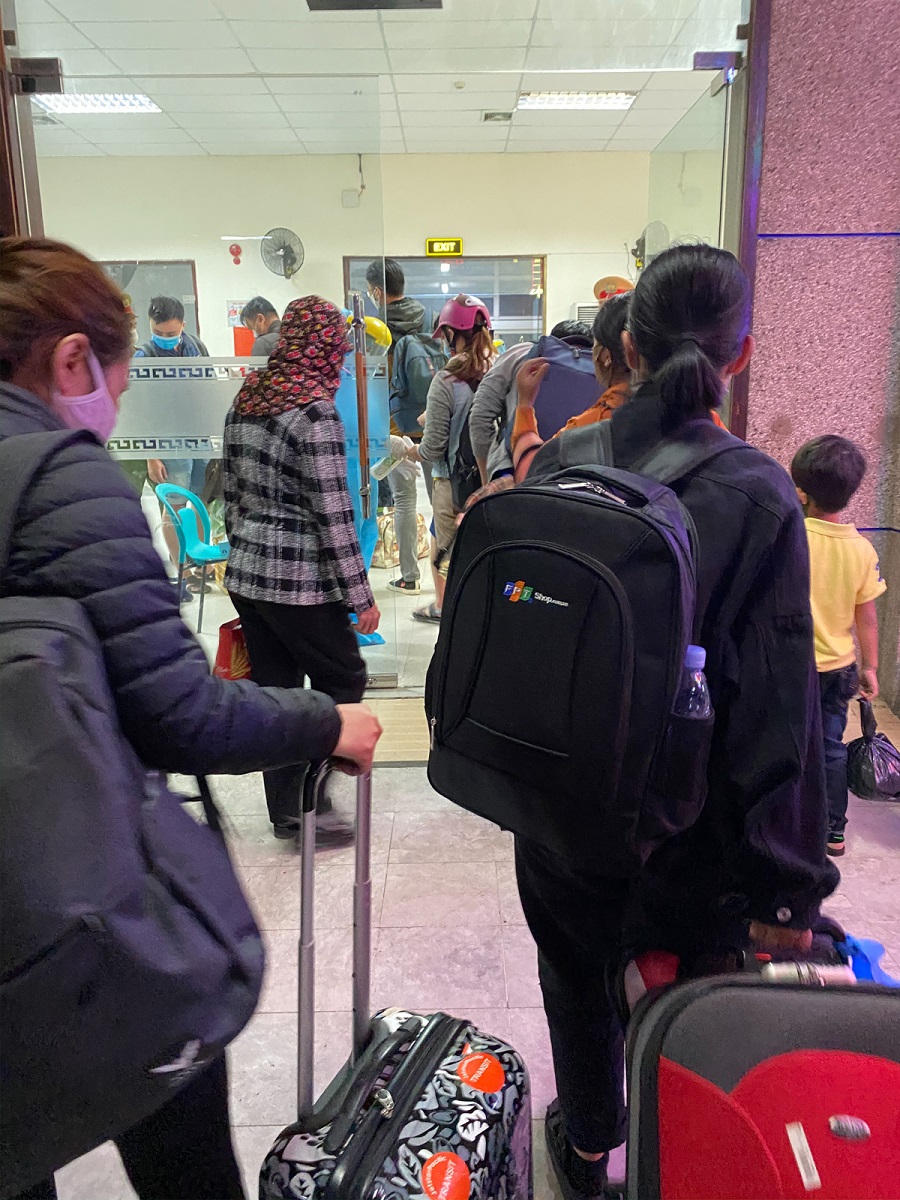
We also had to download their Health Declaration app and fill in our information. Every day the app asks us if we're feeling well or have any symptoms. That way, they can track how we are feeling. If anyone needs any help, they can react much faster than in other countries. Each person is identified with a certain number, which can be scanned through a QR code.
And now we're here. We came to Da Nang at the very last minute. The next day the city was closing down. We got lucky with finding accommodation because many didn't accept foreigners anymore. It was the government's order, so they stop the unnecessary movement.
Tell us about your day. Do you/can you leave your apartment?
The official lockdown (or social distancing measures - the official name they use) was from April 1st until the 15th, but now they extended it for another week. Although there's a huge possibility it will be extended again. We're advised to go out only if necessary, but you can go for a walk, exercise, etc. However, there are many restrictions, especially in the area where we are as it is considered a bit more touristic. The beach is closed. It's not possible to get near it as the police and lifeguards are patrolling the area.
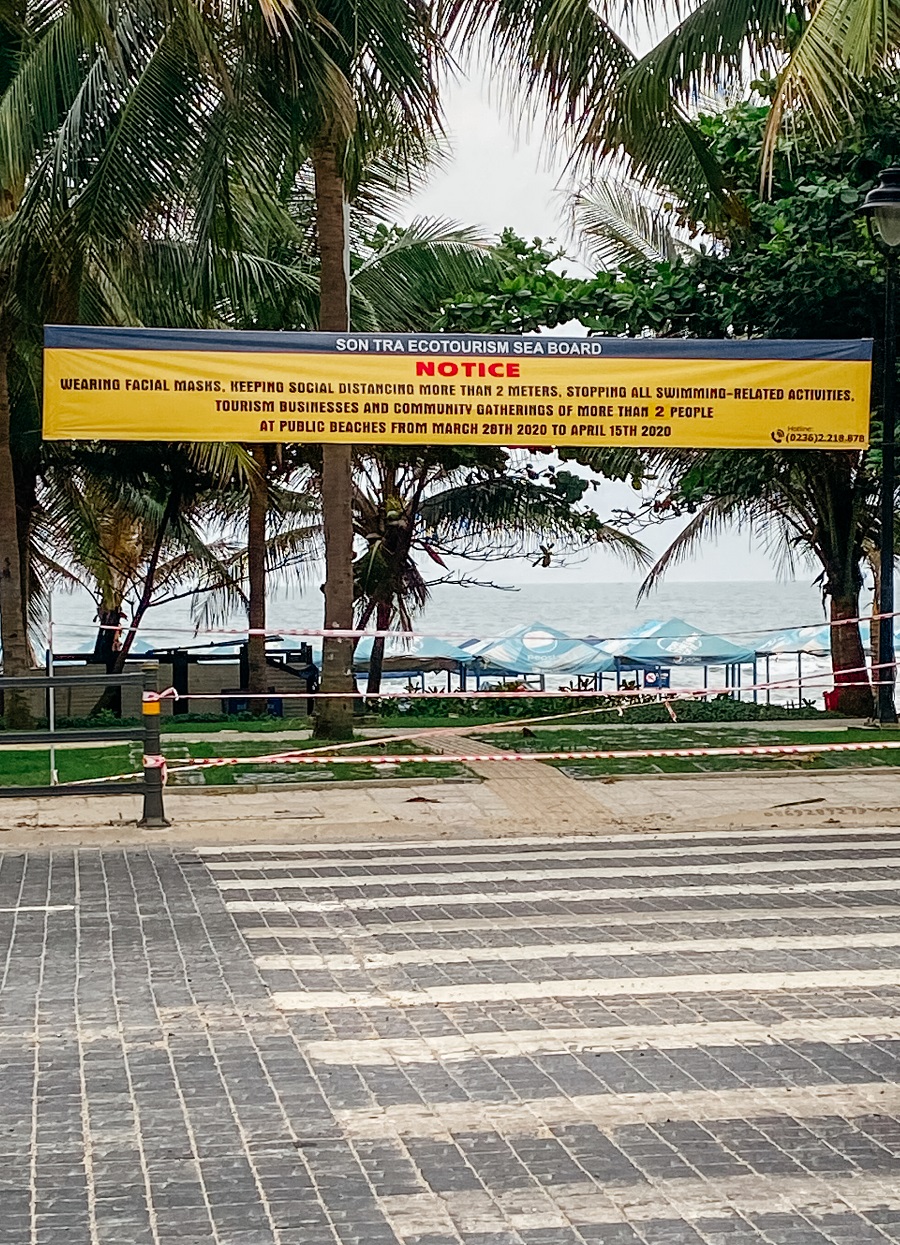
We don't go out much during the day as it's a bit annoying with all the restrictions, and it can be quite busy. That's why we go for night walks around 11 pm. Then we go to the beach because there's no police patrolling the area, and not that many people. Although more and more people started doing the same.
Other than that, we try to make some kind of routine. I finally started working out. This is also the perfect time for learning something new as there are many free webinars and courses about everything. I'm using this situation to improve my skills. There's always something to do. We're not bored at all.
How are the authorities doing at handling the situation?
I think they are doing pretty well. Many police officers are patrolling the area. You know what the rules are, and if you break them, they start whistling right away, letting you know you did something wrong. Other than that, there are fines too, so people are respecting the rules. Vietnam reacted very fast, put strict measures, and they are sticking to it. At the moment, they have only 67 active cases and 0 deaths. For now, we feel safe here.
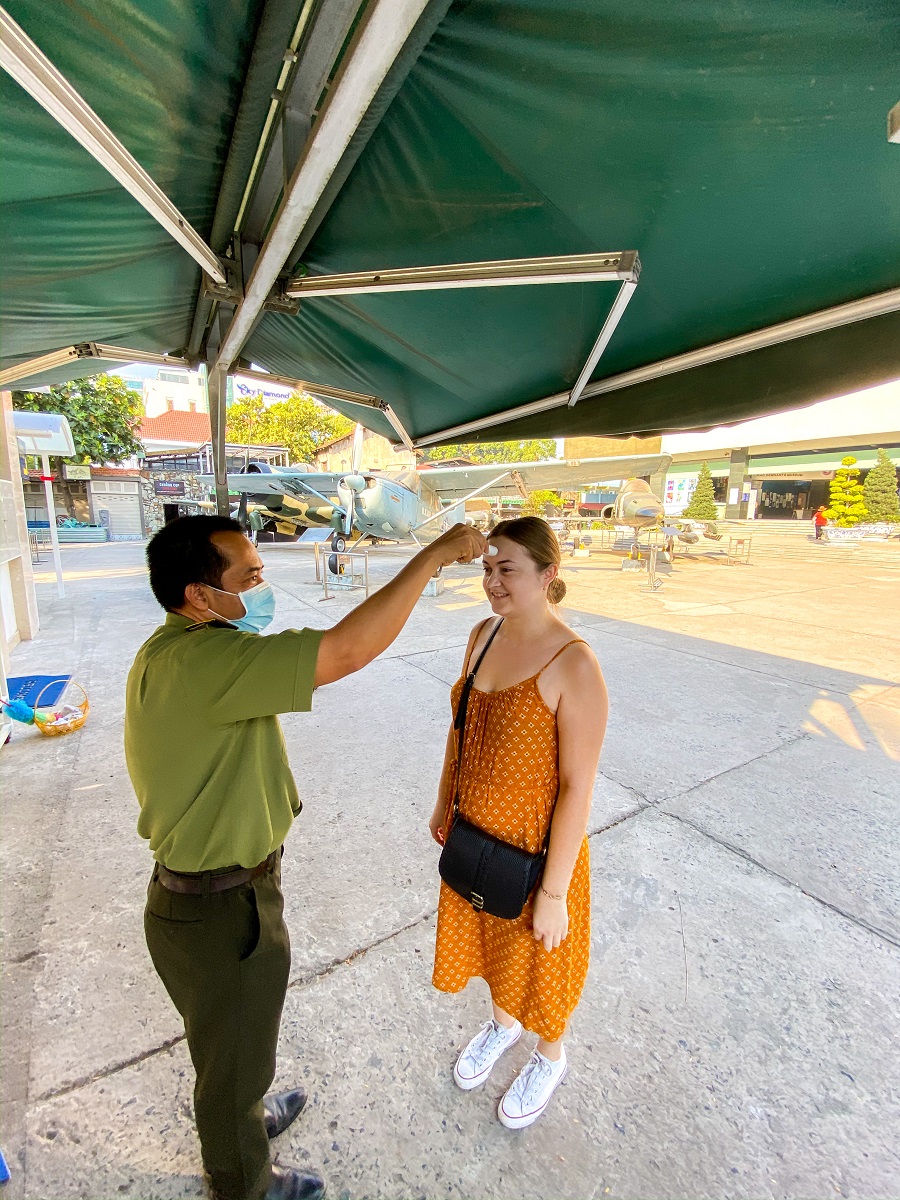
You obviously keep an eye on your homeland. What is your impression of the way Croatia is dealing with the crisis?
Honestly, I don't watch the news that much anymore. I quickly check the situation in Vietnam, so we stay up to date with any new regulations. It was stressing me too much, so I decided to cut that. :D
But when I still watched the news, the only thing I saw was people breaking self-isolation and putting others in danger. If the measures against that were stricter or people were better educated about the situation, I'm sure those cases would be rarer.
Compare and contrast the responses of Croatia and Vietnam. Who is doing what better?
I'm not that familiar with all the measures from both countries. Considering Croatia, I know what I hear from my family, and the thing I dislike a lot is not being able to move from one municipality to another. We know that Croatia has way too many municipalities aka 'općine', and now it is clear that they are entirely useless (it was clear even before but…). For example, my parents are living in the village, which is an 'općina' for itself, and they don't have any big grocery store there. Where to make that 'big shopping' then? The small local stores are so expensive (now even more), and they don't have fresh products. Sometimes, you can also find expired products (without a discount). They're not allowed to go to the small town nearby without a pass (I don't even want to comment on that), so many people in the same situation are having issues. Vietnam also has restricted movement across provinces, but those are much bigger areas, and that makes much more sense.
Also, I don't get how limited the working hours of the stores help. The workers are still exposed to people coming, so what difference does it make. Here the grocery stores work regular hours, which I find better as people spread more equally during those working hours. And people don't stack up on the groceries.
What about official communications from the authorities, compared to your home country?
I'm not sure how it is in Croatia, but here there are signs everywhere explaining social distancing measures. They even have audio coming from the speakers close to the beach explaining the rules. Signs and audio are both in English and Vietnamese. Every day they are sending messages reminding you to wash your hands and stay inside. Online taxi apps (like Grab, which is similar to our Uber) sends you notifications about measures and precautions too. Vietnam even made a viral song about coronavirus intending to educate its citizens. There is also a choreography with dances moves that show the right way of washing your hands. The conclusion is, both locals and foreigners are well informed about everything that's going on.
What's the one thing you wish you had taken with you into self-isolation?
This is a hard question. I don't feel like I miss anything at the moment. However, I wouldn't complain if we had a pool. I'm losing my tan and starting to look like a ghost again (I am very pale). Also, I wish I had more money for all the excellent tools, courses, etc. on huge discounts now. But there's just too many.
One thing you have learned about yourself and one thing you have learned about others during this crisis.
Once again, I learned how much I hate being stuck inside. I was a lot inside before this trip as I worked from home, and the reason we started this trip is for adventure and exploring. And now we're back doing the same. :D
I learned stressing too much about the situations you can't control won't be of any help. You'll just end up being unhappy. The best thing is going with the flow, solve one problem at a time, and adapt to the situation. The faster you adapt, the easier it gets.
In this crisis, you could see the worst and the best in people. Those two extremes were really seen now.
I also learned how bad situations connect people and how many are ready to help. I made some friends in all this mess as we all reached out to one another, trying to make the right decisions.
If you could be self-isolating in Croatia, where would it be, and why?
I don't have any specific location in mind. My go-to place would be the same for any country: some mountain cabin with a lot of nature and a lake nearby, an isolated spot so I could go out in nature whenever I want, without many people around.
Thanks, Arijana. Stay safe and see you on the other side. You can see all the stories in both this diaspora series, and the one on expats in Croatia on this link.
TCN is starting a new feature series on Croatian diaspora experiences of sitting out COVID-19 abroad and comparing your experiences to the situation in Croatia. If you would like to contribute, the questions are below. Please also include a para about yourself and where you are from, and a link to your website if you would like. Please also send 3-4 photos minimum to This email address is being protected from spambots. You need JavaScript enabled to view it. Subject Corona Diaspora
If you would be interested to record a video version for our partners www.rplus.video please let us know in the email. Thanks and stay safe.
Self-Isolation Voices from the Diaspora
Firstly, how are you? Are you alone/with someone? Tell us a little about your situation and sanity levels.
When did you realise that corona was going to be a big issue?
When did you realise that corona was going to be a big issue in New York in particular?
Give us a timeline on when and how life changed.
Tell us about your day. Do you/can you leave your apartment?
How are the authorities doing at handling the situation?
You obviously keep an eye on your homeland. What is your impression of the way Croatia is dealing with the crisis?
Compare and contrast the responses of Croatia and USA. Who is doing what better?
What about official communications from the authorities, compared to your home country?
What's the one thing you wish you had taken with you into self-isolation?
One thing you have learned about yourself, and one thing you have learned about others during this crisis.
If you could be self-isolating in Croatia, where would it be, and why?
TCN has recently become a partner in Robert Tomic Zuber's new R+ video channel, initially telling stories about corona experiences. You can see the first TCN contribution from this morning, my video from Jelsa talking about the realities of running a news portal in the corona era below. If you would like to also submit a video interview, please find Robert's guidelines below
VIDEO RECORDING GUIDE
The video footage should be recorded so that the cell phone is turned horizontally (landscape mode).
There are several rules for television and video news:- length is not a virtue- a picture speaks more than a thousand words
In short, this would mean that your story should not last more than 90 seconds and that everything you say in the report should be shown by video (for example, if you talk about empty streets, we should see those empty streets, etc.).
How to do it with your cell phone? First, use a selfie camera to record yourself telling your story for about a minute and a half. Ideally, it would be taken in the exterior, except in situations where you are reporting on things in the interior (quarantine, hospital, self-isolation, etc.). Also, when shooting, move freely, make sure everything is not static.
After you have recorded your report, you should capture footage that will tell your story with a picture, such as an earlier example with empty streets.
One of the basic rules of TV journalism is that the story is told in the same way as a journalist with his text. Therefore, we ask you for additional effort. Because we work in a very specific situation, sometimes you may not be able to capture footage for each sentence of the report. In this case, record the details on the streets: people walking, the main features of the city where you live, inscriptions on the windows related to the virus, etc.
The same rules apply if you are shooting a story from your apartment, self-isolation, quarantine. We also need you to capture footage that describes your story.
When shooting frames to cover your reports, it is important that you change the angle of the shot (in other words, shoot that empty street from several angles). Also, when shooting a detail, count at least five seconds before removing the camera to another detail.
The material should be about 5 minutes long (90 seconds of your report + frames to cover your story).
After recording everything, send us to Zagreb, preferably via WeTransfer to This email address is being protected from spambots. You need JavaScript enabled to view it.


